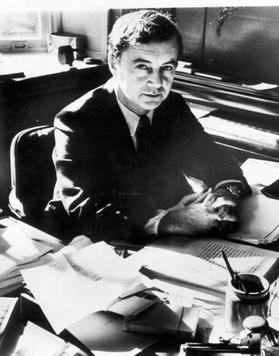
All the World’s a Stage
In 1988, a socio-linguist at the university of Pennsylvania posted a note on the departmental bulletin board announcing she had moved her late husband’s personal library into an unused office. Anyone who wanted any of the books should feel free to take them. Her husband had been the chair of Penn’s sociology department. They’d married in 1981, and he died the following year at age sixty. Normally you’d expect the books and papers to be donated to some library to assist future researchers, but she’d recently remarried, so I guess she either wanted to get rid of any reminders of her previous husband, or simply needed the space.
At the time my then-wife was a grad student in Penn’s linguistics department, and told me about the announcement when she got home that afternoon.
Well, had this professor’s dead husband been any plain, boring old sociologist, I wouldn’t have thought much about it, but given her dead husband was Erving Goffman, I immediately began gathering all the boxes and bags I could find. That night around ten, when she was certain the department would be pretty empty, my then-wife and I snuck back to Penn under cover of darkness and I absconded with Erving Goffman’s personal library. Didn’t even look at titles—just grabbed up armloads of books and tossed them into boxes to carry away.
As I began sorting through them in the following days, I of course discovered the expected sociology, anthropology and psychology textbooks, anthologies and journals, as well as first editions of all of Goffman’s own books, each featuring his identifying signature (in pencil) in the upper right hand corner of the title page. But those didn’t make up the bulk of my haul.
There were Catholic marriage manuals from the Fifties, dozens of volumes (both academic and popular) about sexual deviance, a whole bunch of books about juvenile delinquency with titles like Wayward Youth and The Violent Gang, several issues of Corrections (a quarterly journal aimed at prison wardens), a lot of original crime pulps from the Forties and Fifties, avant-garde literary novels, a medical book about skin diseases, some books about religious cults (particularly Jim Jones’ Peoples Temple), a first edition of Michael Lesy’s Wisconsin Death Trip, and So many other unexpected gems. It was, as I’d hoped, an oddball collection that offered a bit of insight into Goffman’s work and thinking.

